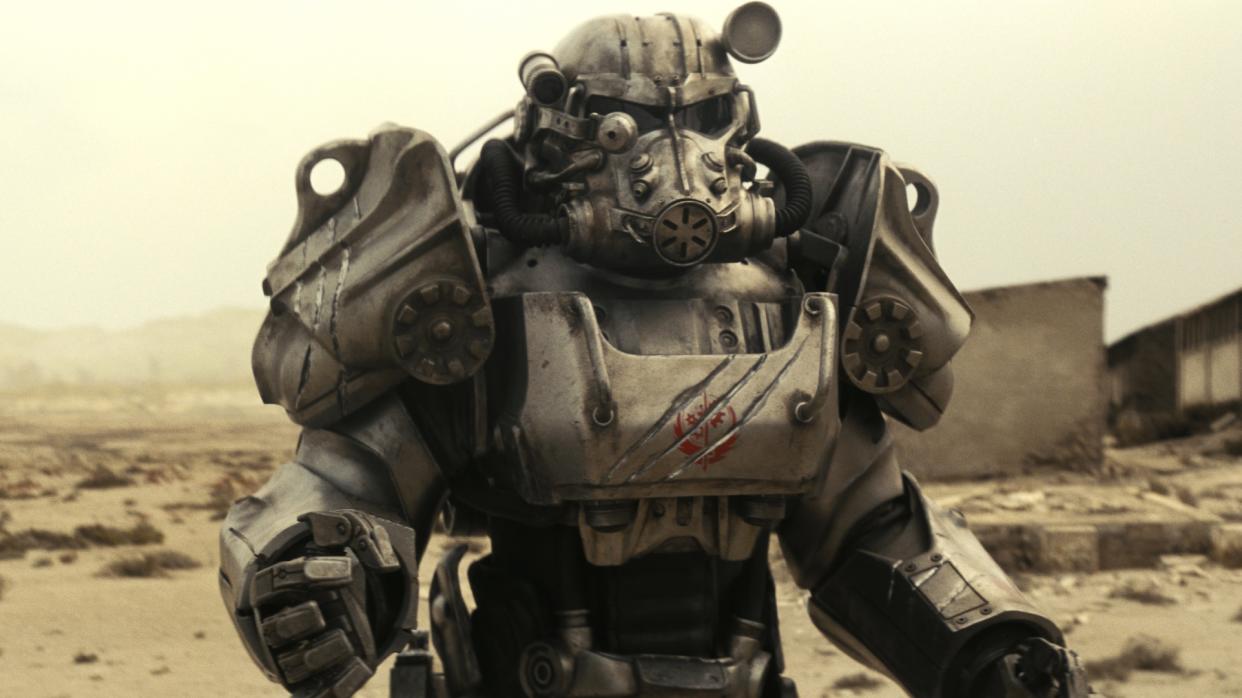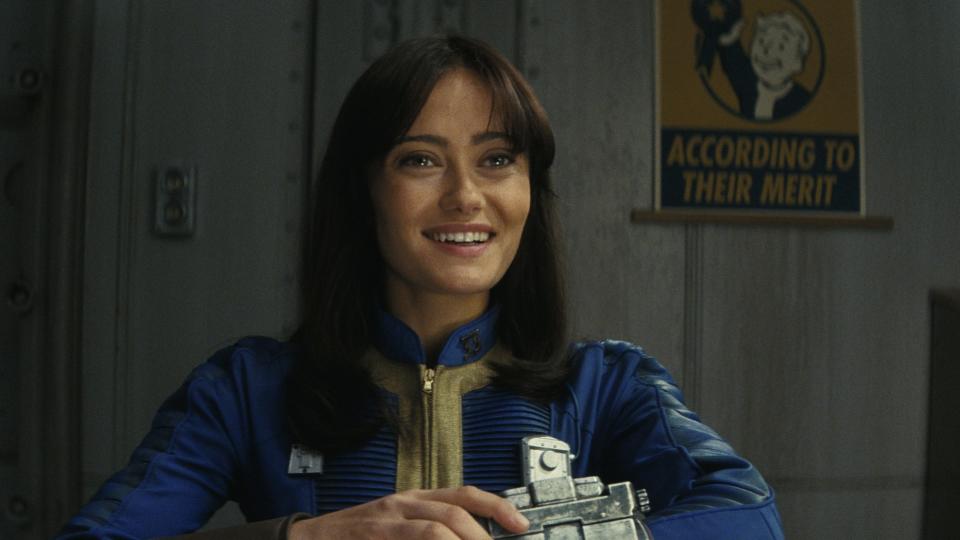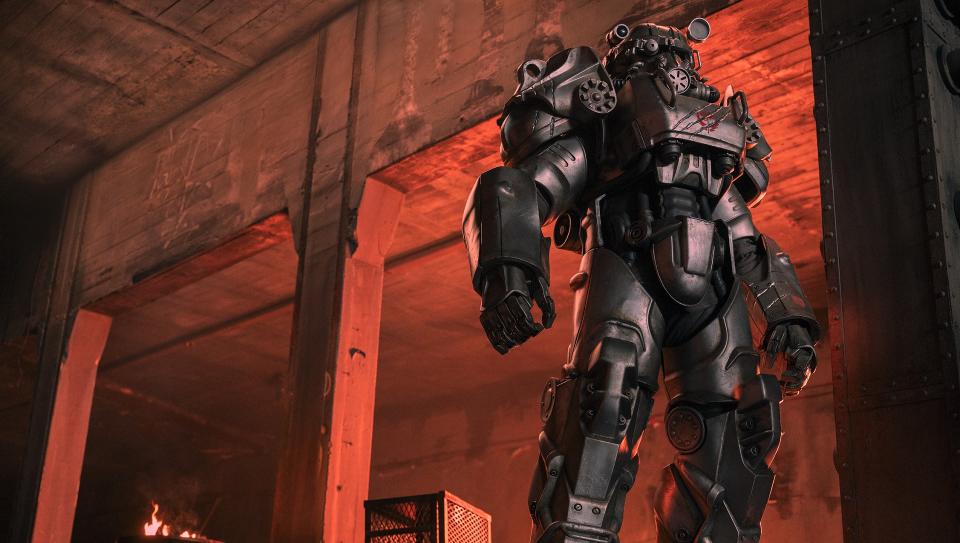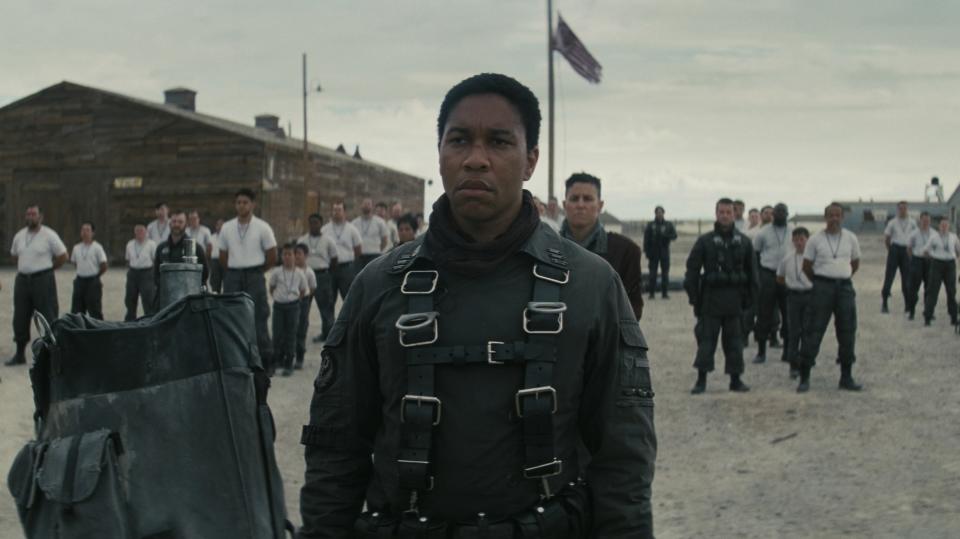"I think we might've died if we tried to do a 24-episode order of a show like this." Fallout TV series cast, creator, and showrunners talk about adapting the iconic game franchise in a new interview.

"A little scary, but also exhilarating."
So says Jonathan Nolan, creator of the Fallout TV series on Prime Video, discussing the challenges and surprises that he and the others faced when working on this ambitious adaption of the iconic Fallout game franchise.
Shortly before the premiere of the series, I had the chance to speak with Nolan, as well as showrunners Geneva Robertson-Dworet and Graham Wagner along with cast members Aaron Moten, Ella Purnell, and Michael Emerson to discuss the excitement and challenges faced in bringing this show to life.
Note: While there are no truly major reveals discussed, I do recommend watching the first couple of episodes of the show before reading this if you want to avoid some light spoilers. All eight episodes are now available on Prime Video, and you can read my review of the Fallout TV series' first season now.
A dark world brimming with comedy

Speaking with Nolan, it's clear straight away that he and the rest of the team understood the need to capture Fallout's sense of humor. The games can be quite dark — much of the world being bombed into a nuclear hellscape is a rough topic — but they can also be extremely funny, if still leaning toward a dark sense of humor.
"The thing that I got to do with this project that I really hadn't gotten the chance to do before was the humor, the comedy," Nolan says. "Working with our showrunners — Geneva, who comes from the world of comic book movies like me, but also Graham, who comes from the world of comedy — and trying to get that balance right, that antic tone of the games."
"It gave me the chance to work with more humorous and comic material than I had before, and these incredible comic actors, where you get the chance to put the scene up and play a little bit with it, and find the humor. A little scary, but also really exhilarating."
That's backed up by Robertson-Dworet, who notes that finding the balance between dark humor and making sure the plot moves forward was "key" to the collaboration between her and fellow showrunner Wagner. At any point where restraint might've been possible, the show instead lunges forward. During the opening of the second episode, as scientists perform unethical experiments, we literally see a puppy chucked into a furnace.
"I didn't protest, I just recall being like 'Are we fucking doing this?' and then we're there on set building a beautiful, beautiful puppy replica," Wagner recalls while laughing. "It literally had a heartbeat and could breathe, and then we're just chucking it in the incinerator and I was just like 'I've done some dark shit, that definitely is the darkest.'"
Three leads, one show

While the Fallout games stick to one protagonist that players customize, that's obviously not the case for the show. Instead, while we get a large number of viewpoints, the central narrative revolves around three very different survivors: Vault Dweller Lucy (Ella Purnell), Brotherhood of Steel hopeful Maximus (Aaron Moten), and Cooper Howard, aka The Ghoul (Walton Goggins), an actor from before the bombs fell who has evolved into a deadly gunslinger.
According to Nolan, these multiple viewpoints were a key benefit of adapting Fallout into a show, with both he and Bethesda Game Studios' Todd Howard particularly excited around telling flashbacks "before the fall" surrounding Cooper Howard, while also maintaining the constant sense of being sidetracked that Bethesda games tend to provide.
"Obviously, with this series we can't give the audience the same open-world interactive experience they have with the games," Nolan says. "They don't get to decide if the Vault Dweller's gonna be good, bad, or somewhere in-between. You have certain advantages in [a] series, where you can have an ensemble form of storytelling, which would be more difficult to do, more challenging to do in a video game. You can have flashbacks, we can see more of that world."
"You lose some things and you gain some things, but it's our hope that we've honored the essence and the spirit of the games," he adds.
Of the three protagonists, Lucy is the most representative of a player, literally listing off her skills like a player selecting their S.P.E.C.I.A.L. attributes. Following the massacre of her wedding going awry, Lucy also gets the big moment where she steps out of a Vault and into the Wasteland on a quest. For actress Purnell, Lucy represents the very beginning of a game, while The Ghoul is someone completely at home in the Wasteland."
"You lose some things and you gain some things, but it's our hope that we've honored the essence and the spirit of the games."
"That was a really exciting place to be, that this is the player's entrance into the game, this is the audience's entrance into the show," Purnell says. "Something that I was really impressed by is how many ways they managed to adapt the game into the show, and one of those ways is taking The Ghoul, Lucy, and Maximus, these three sort of archetypes, turning them into central characters in the show, and they all [represent] very different places in the games."
"Lucy is the beginning of the game, coming out of the Vault. The Ghoul on the other hand, completely opposite end of the spectrum, he's been around a long time, he is fully evolved, he's adapted...it's really exciting to be starting in a place of complete innocence, and building all of her real life experience from that place."
Meanwhile, actor Moten believes that Maximus isn't exactly sure where he fits in. Raised by the Brotherhood of Steel from a young age, Maximus often seems to find himself conflicted between obeying his superiors and doing something for himself.
"The existence that he's lived in, being born and raised in the Wasteland, it's been a harsh reality for him, and I also think the Brotherhood lifestyle is a harsh reality for Maximus," Moten says. "So I think it's kind of fostered this young guy who's got demons. I think he's got things to work out, and he's being pulled in all these different directions."
"Part of our interesting journey for Maximus in this first series is how to continue to discover who he is — and he's there all along — but in what decisions do we actually see Maximus? Which part of this moment was actually him and where is he pretending to be something that he isn't? There's some mystery to it in a really healthy way that we really liked playing with, and it's a really exciting journey through the Wasteland and all these circumstances that get us all the way through to how these characters change and evolve getting to and through the finale."
Scale and presentation

When I asked actor Michael Emerson — who plays Wilzig, a renegade Enclave scientist that multiple factions are after — about what surprised him the most in being a part of Fallout, he immediately points to the production scale.
"Scenic design, location. I'd never worked in circumstances like that, that were so chaotic, or grand, or vast. Even the sets built on sound stages were vast," he says. "The Vaults...I mean the throw of some of those must've been 50 or 100 yards, you could walk in a straight line and be in that environment, towering over your head. It was very real. It was an adjustment, you feel like 'Oh, you're bound to make a performance that can live and breathe in a space so great.'"
Despite the impressive budget and scope of the show, it still falls victim to one limitation shared by many other series in recent years — being constrained to just eight episodes. According to Wagner, the challenges and benefits of a shorter series are a "perfectly mixed bag."
"If we're lucky enough to get a second season, we may be counting our lucky stars that it's only eight so that we can not die."
"Eight hours of content, of story, to capture the spirit of Fallout, which is a video game franchise that's been going for 25 years, you can spend a thousand hours in a single [game]...it's an incredible challenge, but at the same time, the scope of the production was so great, we went to Utah, Namibia, we were filming in New York, I think we might've died if we tried to do a 24-episode order of a show like this," Wagner says.
"Humanely, it's only eight, but creatively, gosh, it would be great to have more. If we're lucky enough to get a second season, we may be counting our lucky stars that it's only eight so that we can not die."
Bringing everything full circle, I asked Nolan what lone word he would use to describe the arc of this series. For him, there isn't any word that would suffice.
"This is one of the reasons we were so excited to work on this series. When I played Fallout 3 for the first time — which was my first experience with the franchise — it defied one word, it wasn't one word, it was all of these different textures that I had never seen married together before: Dark, emotional, violent, but also funny, satirical, subversive, all these different words," Nolan explains. "I think the joy for me of the franchise is that it doesn't fit into one word."
When I asked Emerson the same question, he has a slightly different, but equally valid answer. "It's epic."
